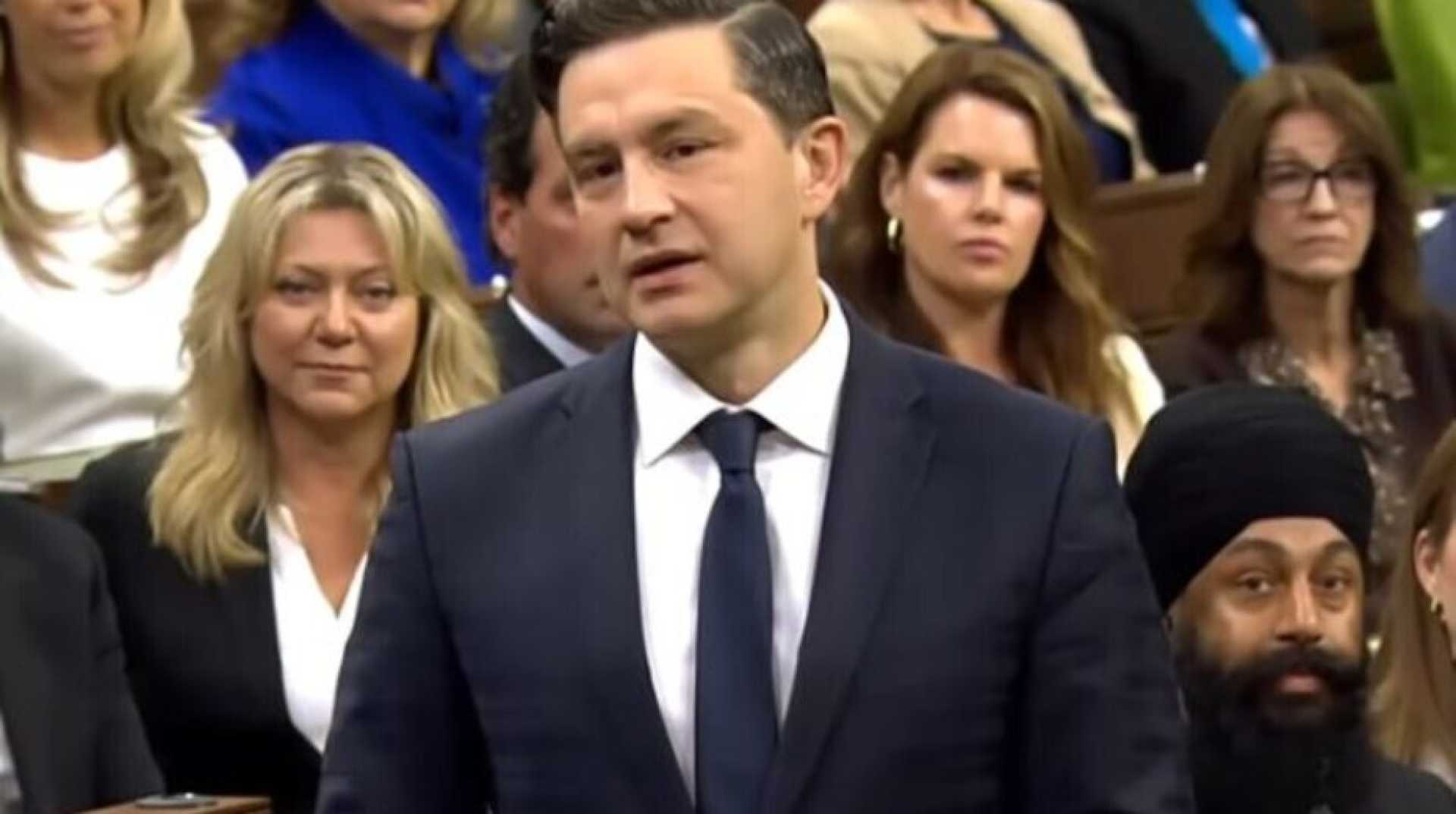Politics
Conservative Leader Calls for Pre-emptive Strike on Iran’s Nuclear Sites Amid Rising Middle East Tensions

Conservative Leader Pierre Poilievre reiterated his call for a pre-emptive strike on Iran‘s nuclear facilities, describing such a move as “a gift by the Jewish state to humanity.” Speaking in Ottawa on Tuesday, Poilievre doubled down on comments made a day prior, amid increasing tensions following Iran’s ballistic missile attack on Israel.
Poilievre’s statement comes in the context of heightened conflict in the Middle East, fueled by Iran’s support for militant groups opposing Israel. Last week, Iran launched a barrage of ballistic missiles at Israel, prompting discussions on potential retaliatory measures. U.S. President Joe Biden, however, cautioned against escalating the conflict further by targeting Iran’s nuclear sites.
“I think the idea of allowing a genocidal, theocratic, unstable dictatorship that is desperate to avoid being overthrown by its own people to develop nuclear weapons is about the most dangerous and irresponsible thing that the world could ever allow,” Poilievre stated, emphasizing the threat he perceives from Iran’s nuclear ambitions.
Poilievre’s rhetoric reflects a long-standing hardline stance towards Iran. He has attributed responsibility for last year’s October 7 attack on Israel to Tehran, accusing the Iranian government of undermining peace efforts between Israel and Saudi Arabia.
In contrast to Poilievre’s position, President Biden has advocated for a “proportional” response, emphasizing the need to prevent further regional escalation. Discussions between U.S. and Israeli officials are ongoing as they seek a way forward in handling the situation.
Defence Minister Bill Blair, while acknowledging Israel’s right to self-defense, suggested that targeting Iranian oil facilities could be appropriate, but did not explicitly support strikes on nuclear sites. Blair highlighted the importance of reducing future threats through strategic military actions.
Despite international agreements aimed at limiting Iran’s nuclear program, there are fears within the global community that Iran could quickly produce nuclear weapons if pressed. The uncertainty surrounding Iran’s intentions is compounded by a fatwa historically issued by Supreme Leader Ayatollah Ali Khamenei against nuclear proliferation, though its current applicability remains speculative.
Former U.S. President Donald Trump, speaking at a campaign event, argued for a more aggressive approach, advocating for immediate strikes on Iran’s nuclear capabilities. Vice-President Kamala Harris, in a recent interview, identified Iran as a significant adversary for the United States, underscoring her commitment to ensuring that Iran does not achieve nuclear power status.
Within Israel, retired Major General Giora Eiland noted the protective measures around Iran’s nuclear facilities, suggesting alternative targets could yield significant damage if military action becomes necessary.
The Canadian government, led by Prime Minister Justin Trudeau and Foreign Affairs Minister Mélanie Joly, has expressed its aim to prevent a broader conflict between Israel and Iran. This stance reflects a broader international consensus seeking to de-escalate the situation, emphasizing diplomacy over military confrontation.












